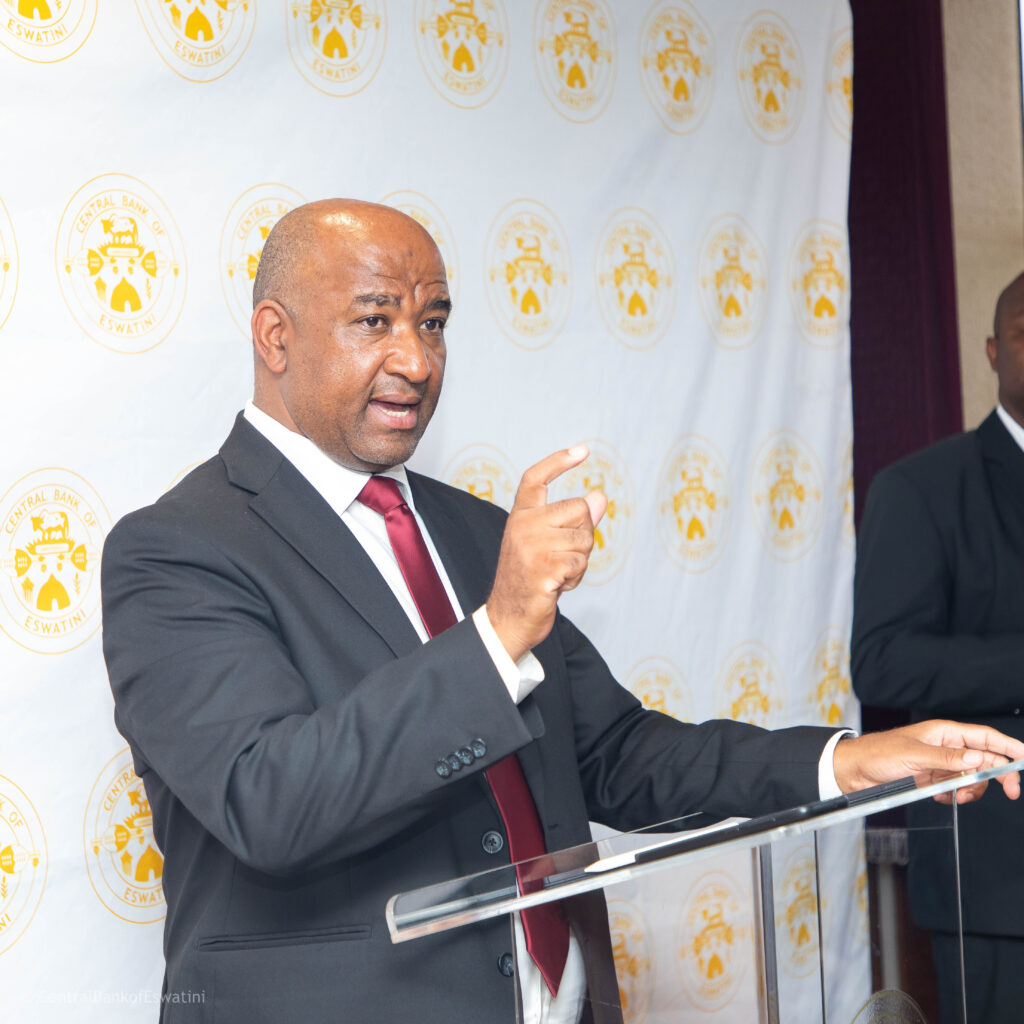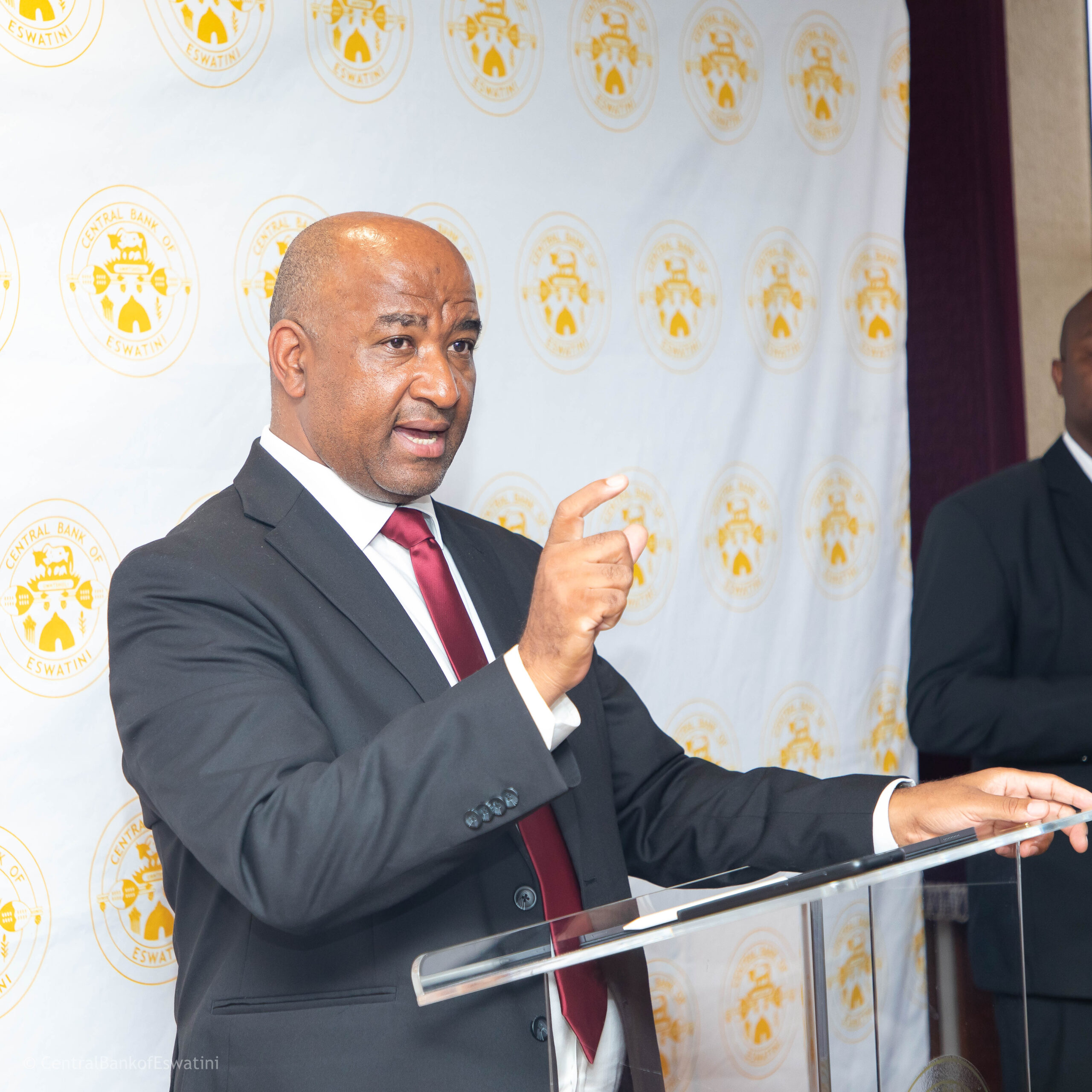
By Sifiso Sibandze
Eswatini might not be experiencing load shedding as its neighbouring South Africa, but its ripple effects are negatively impacting the economy.
This was an observation of the Central Bank of Eswatini Governor Dr Phil Mnisi.
Dr Mnisi noted that the importing of over 75 per cent of electricity means when the republic struggles with load shedding, “that challenge automatically affects supplies to Eswatini because it is an inherent risk”.
He went on to say that the impact of the load shedding on the Eswatini economy is seen through manufacturers. Dr Mnisi said local manufacturers are struggling to import raw materials from South Africa because of low supply and that result in the local manufacturers failing to meet demand.
The Governor also highlighted that the load shedding is also causing a shortage of goods which might trigger an increase in prices, subsequently triggering an inflation hike.
“There is a forecast that says there would be slower growth in the South African economy due to the pressures of the energy supply. This means when South Africa’s economy declines, and yet it is a major supplier of goods and services to Eswatini that will have a direct impact on our economy,” the Governor said.
In Dr Mnisi’s view, to overcome this as a country, we need to drive the establishment of baseload agenda for the country to have a sufficient internal supply of electricity so that we can industrialize our economy and minimize dependency on South Africa for energy.
Commenting on the impact of the political unrest on the economy, the Governor pointed out that: “Social instability indeed hampers the economy as it results in the shutdown of the economy as activity in all economic sectors comes to a standstill.”
He made an example of the effects of the Russia-Ukraine war that has caused supply chain disruption, which has caused food shortages and the cost of living crisis globally.
Regarding what the bank is doing to mitigate the effects of the impending recession, the Governor said the CBE is looking at monetary policy and the fiscus policy is looked at by the Ministry of Finance and government.
He said the government including the private sector should respond by driving policies that will create an enabling environment so that Eswatini, as one of the small countries in Sub-Saharan Africa “can survive and be sustainable despite the global recession.”
The Governor also commented that the bank is making sure and will continue to guarantee that the hike in interest rates doesn’t put a strain on businesses. He said the CBE has always tried to increase borrowing costs marginally to ensure that businesses servicing loans are not overburdened.
“If you look at our major economic partner, South Africa which increased the bank rate by 0.75 per cent in November. And we did not increase ours at the same magnitude and had a 0.25 per cent differential. One of the main reasons why we are very careful and very cautious with our monetary policy is that we continuously keep an eye on the lending portfolio and performance of loans within our banking sector. At this point, any stress that could have been felt or is being felt by entities has not fully translated to the data that we have,” he said.
The Governor said at the end of November 2022, credit extension to the private sector amounted to E17.2 billion, reflecting an increase of 1.1 per cent over the month. He attributed the month-on-month rise to improvements in credit to households & non-profit institutions serving households (NPISH) and businesses.
In contrast, the Governor said credit to other (unclassified) sectors of the economy receded over the review month. “Credit extended to households & NPISH grew by 2.6 per cent in November 2022 from a decline of 0.2 per cent the previous month to E8.1 billion whilst credit extended to other sectors of the domestic economy regressed by 6.0 per cent month-on-month to settle at E678.8 million at the end of November 2022. Credit extended to businesses amounted to E8.4 billion at the end of November 2022, depicting a modest increase of 0.2 per cent from the previous month,” he said.
Regarding non-performing loans, he said they amounted to E1.0 billion at the end of November 2022, depicting a month-on-month decline of 1.4 per cent. Consequently, the NPL ratio improved from 7 per cent to 6.9 per cent. The improvement in the quality of the loan book was mainly on account of improved loan service by parastatals and businesses.






